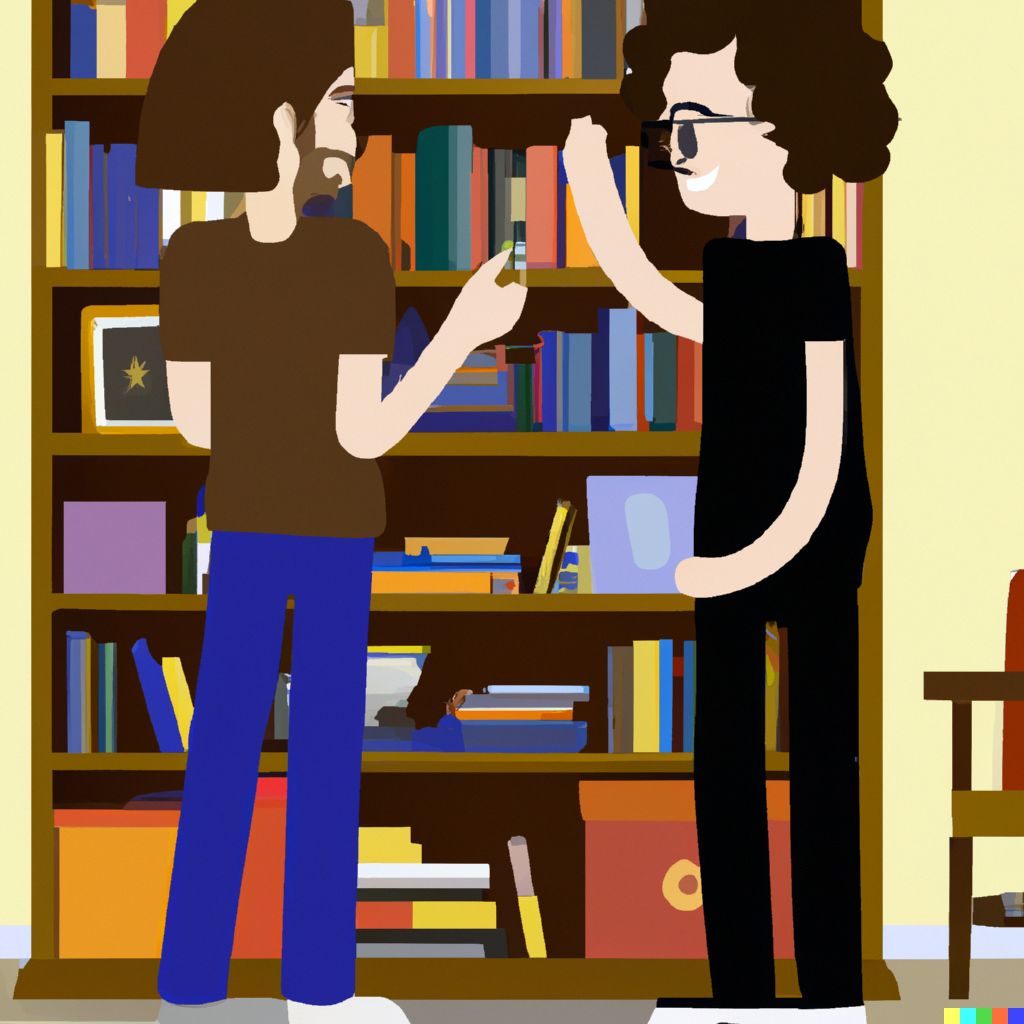A vision narrative for Digishelf
When creating a new product, it’s important to be clear on how your product fits into the life of a real person. A vision narrative can help.

When creating a new product, it’s important to be clear on how your product fits into the life of a real person. One technique for clarifying this for yourself is to write a vision narrative. A vision narrative is a short story with fictional characters who experience the user journey your product is meant to improve. It’s helpful to get detailed enough that your target audience can follow along and easily empathize.
As an example, here’s a vision narrative I wrote for a product I’m working on called Digishelf. If you have any thoughts on the vision narrative technique or digishelf as a product, I’d love to hear from you!
Jane’s been looking forward to this evening all day. Her new friend Riley invited Jane over for dinner and hangs. Riley is one of those people Jane thinks could be a future best friend, so she’s excited to be invited over to their place for the first time.
Jane arrives at Riley’s with salad, dessert, and drinks. Riley’s prepared their go to meal for hosting — fish tacos with avocado-cilantro slaw. They have a tasty meal with easy, comfortable conversation. While they clean up and discuss what to do next, Jane wanders over to the bookshelf.
Jane is an intentional reader. She reads about 30 books a year and proactively manages her list of books to read next. She’s always looking for her next great book and loves to discuss book recommendations. So naturally, she’s attracted to the bookshelf in Riley’s living room.
The bookshelf is full, but not overflowing, and quite pretty. It’s tidy and organized into themes that are intuitive after reading a few titles. The themes Jane discovers unlock a new level of understanding “who is Riley”. She suddenly feels more connected to Riley as she identifies their similar interests — cooking, behavioral psychology, fantasy, sci fi — and opportunities to learn new things from Riley — gardening, social justice, classic literature.
Riley walks over and warmly asks Jane, “See anything you’re interested in?”. Jane shares with Riley how she loves cooking with fresh herbs and dreams of having a great garden one day. Conversation flows naturally from there as Riley and Jane discuss various books they’ve enjoyed related to cooking and gardening. Riley pulls out their favorite book on gardening, Second Nature: A Gardener's Education by Michael Pollan, and lends it to Jane to read.
After a lovely evening, Jane returns home with her new book.
Days later, she starts reading Second Nature. Because she’s already a big Michael Pollan fan and the book comes recommended by Riley, she’s primed to thoroughly enjoy it. When Jane and Riley next run into each other, Jane shares that she’s started Second Nature and is really enjoying it. They bond over their favorite anecdotes, talk more about books, and share more of their dreams with each other.
This is the start of a beautiful friendship.
As someone who only reads digital books, it pains me that I’m missing out on an experience like Jane and Riley’s when friends come over to my home. I want to have this experience, but there is no such thing as a digital book shelf.
I want to create a product for digital book readers that acts as book shelf and promotes serendipitous interactions like Jane and Riley’s. I’m envisioning a tablet (or digital photo frame) prominently displayed in a home that shows all of the digital books in a reader’s collection and allows a guest to interact with their books. Perhaps a guest can scroll through their host’s library, get more details on a single book their interested in, and easily “borrow” that book. Perhaps the product even helps hosts and guests keep track of what’s borrowed to promote follow up interactions. Perhaps the product could be better than a physical book shelf in that it proactively guides users towards becoming better friends as a result of their shared interests.
Thoughts?
- Have you ever had an experience like Jane and Riley’s? How’d it go?
- Do you feel like you’re missing out on experiences like theirs? Why or why not? How come?